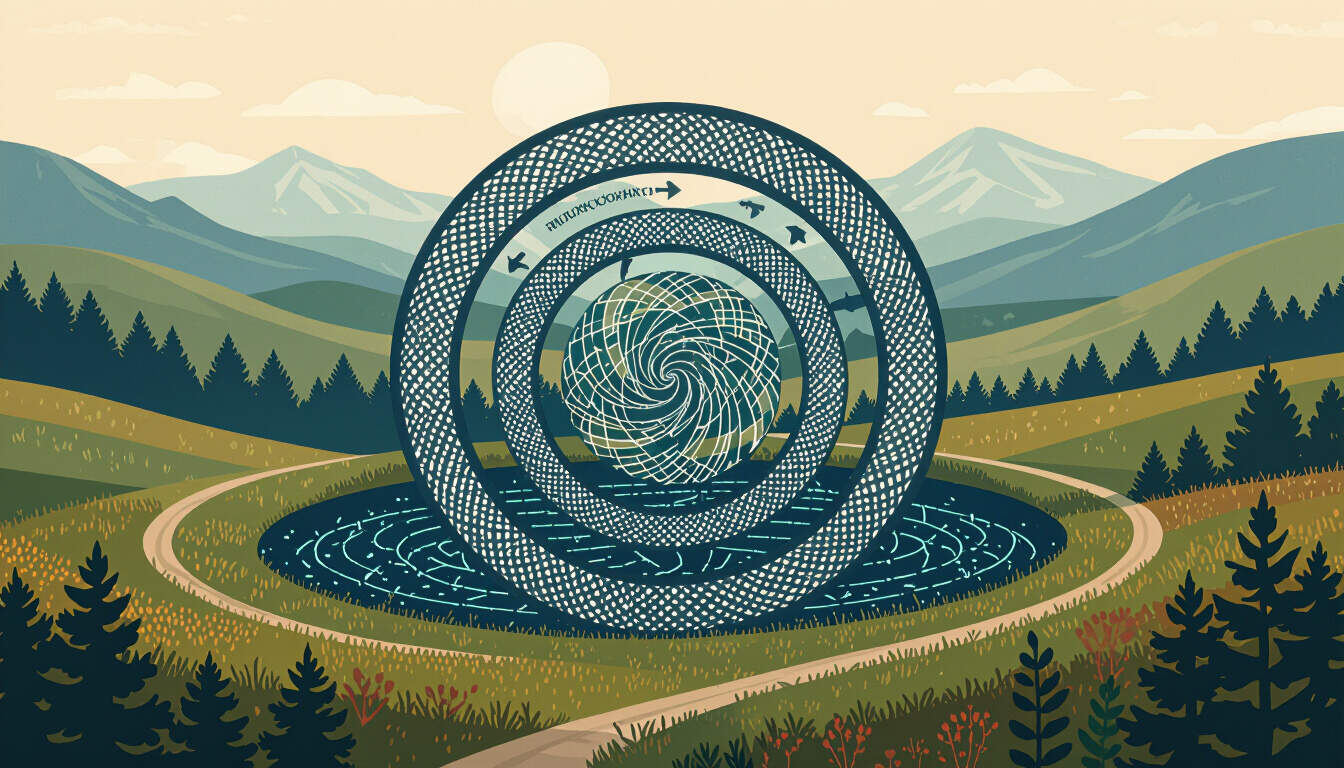Feedback Loops in Historical Events and Second-Order Thinking
 by Lilian Nienow
by Lilian Nienow
Feedback loops shape historical events by creating cycles of cause and effect, while second-order thinking helps analyze deeper implications. This article examines key examples, offering insights for personal growth and systems analysis in everyday life.

Feedback loops play a crucial role in shaping historical events, often leading to outcomes that extend far beyond initial actions. For instance, in the context of economic shifts, feedback loops can amplify small changes into major transformations.
Consider the patterns seen during major societal changes, such as the rise and fall of ancient civilizations. One example is the agricultural revolutions that altered human societies. As populations grew due to improved food production, demand for resources increased, which in turn pressured land and water supplies. This created a cycle where growth led to strain, eventually influencing migration and conflict.
Second-order thinking involves looking at the indirect consequences of decisions, a process that can reveal how feedback loops operate over time. In historical analysis, this means examining not just immediate results but the long-term effects that ripple through societies. For professionals and students interested in cognitive processes, applying second-order thinking to history provides tools for better decision-making.
Take the industrial era as another case. Innovations in manufacturing led to urbanization, which then spurred demands for better infrastructure. As cities expanded, social issues like inequality emerged, feeding back into political movements. This demonstrates how initial progress can create loops that challenge stability.
In personal development, recognizing these patterns encourages individuals to anticipate outcomes. For example, a decision to invest in education might lead to career advancement, but it could also create new demands for work-life balance. Here, second-order thinking helps in forecasting these interconnections.
Historical events often involve interconnected systems, where actions in one area affect others. The colonial expansions of the 18th and 19th centuries illustrate this well. European powers established trade networks that boosted economies at home, but this reliance on colonies created dependencies. When resources dwindled or rebellions occurred, it triggered economic downturns, forming a loop of exploitation and backlash.
Systems thinking, a related concept, builds on understanding feedback loops by viewing events as parts of larger wholes. In education, students can apply this to study how environmental changes influence human behavior. For instance, deforestation in certain regions led to soil erosion, which reduced agricultural yields and prompted migrations. These migrations then affected urban areas, creating new social dynamics.
Professionals in fields like business or policy benefit from this analytical approach. By considering second-order effects, they can design strategies that account for potential loops. A company expanding into new markets might see initial success, but without anticipating cultural differences, it could face resistance that loops back to damage the brand.
Curious individuals exploring cognitive processes often find that practicing second-order thinking enhances problem-solving. It shifts focus from reactive responses to proactive planning. In historical contexts, this means learning from past loops to inform present choices.
To break down these ideas further:
- Identifying loops: Start by mapping out cause-and-effect chains in historical narratives. For example, wars often stem from resource scarcity, which loops into further conflicts.
- Analyzing depth: Use second-order thinking to question what follows initial outcomes. In the case of technological advancements, consider how they alter social structures.
- Applying to development: For personal growth, reflect on daily decisions and their broader impacts, fostering a mindset of continuous improvement.
Through these lenses, history becomes a guide for navigating life's systems. Feedback loops in events like the Great Depression show how financial crashes can lead to policy reforms, which then influence future economies. This cyclical nature underscores the importance of thoughtful analysis.
In conclusion, exploring feedback loops and second-order thinking in historical events offers valuable lessons. By integrating these concepts, readers can enhance their cognitive approaches, leading to more informed decisions in professional, educational, and personal spheres.
